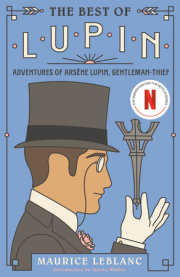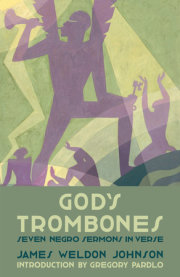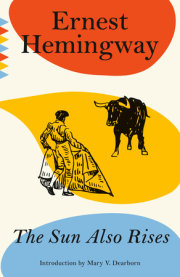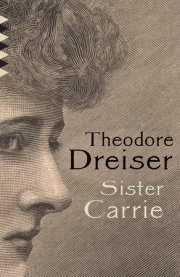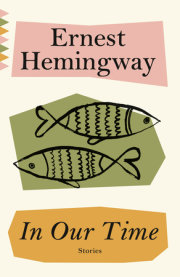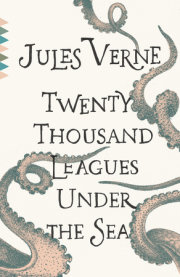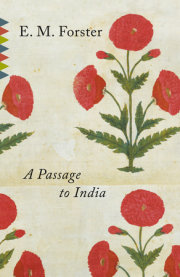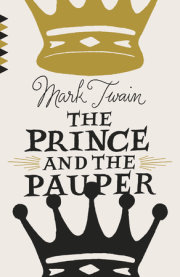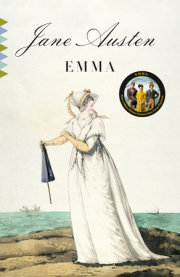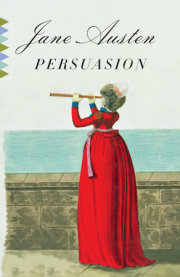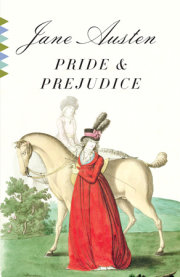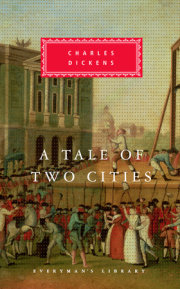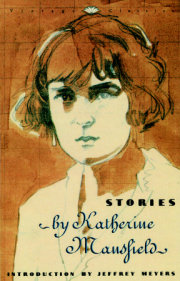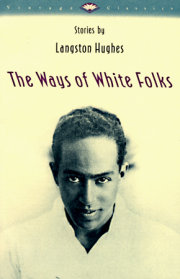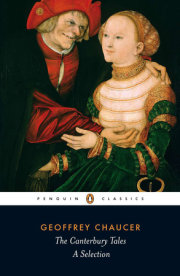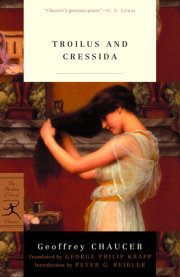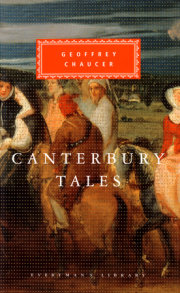The Knight’s Tale
The old legends tell us there was once a Duke called Theseus who was lord and ruler of Athens. In his time there was no mightier conqueror under the sun. He had overrun many rich kingdoms, and by his generalship and knightly valour had conquered the land of the Amazons, then called Scythia, and wedded Hippolyta their queen, whom he brought home with him to his own land in the greatest pomp and splendour, together with her younger sister Emily. And so I leave this noble Duke and his armed host riding victoriously and with music towards Athens. If it weren't too long to listen to I would certainly describe in detail how the land of women was vanquished by Theseus and his knights; and especially the pitched battle between the Athenians and the Amazons; how Hippolyta, the fierce and beautiful queen of Scythia, was besieged; the feast that took place at their wedding, and the great storm that blew up on their voyage home. But for the time being I must pass over all these things—God knows I have a big field to plough and weak oxen in my team. The rest of my tale is long enough; and I don't want to stand in the way of the others in our party. Let everyone tell his tale in turn and we'll see who wins the dinner. So I'll begin again where I left off.
The Duke I spoke of had just approached the outskirts of the town when, in the midst of all his joy and triumph, he noticed out of the corner of his eye a band of ladies dressed in black kneeling two by two in a row on the highway. They were weeping and wailing, making a lamentation the like of which no living creature ever heard; nor would they stop their clamour until they had laid hold of his bridle-rein.
'Who may you be who disturb my homecoming and the general joy with these outcries?' asked Theseus. 'Is it because you grudge me these honours that you complain and cry out like this? Or has somebody insulted or injured you? Tell me if it can be redressed, and why you are thus clothed in black.'
Almost fainting, with a deathlike countenance pitiful to see, the eldest of these ladies began to speak: 'My lord, to whom Fortune has granted victory and all the honours of a conqueror, we do not grudge you your laurels or your triumph, but beg for aid and mercy. Have mercy on our distress and grief! Out of the nobility of your heart let some drop of pity fall upon us wretched women— for indeed, my lord, there is not one of us who was not once a duchess or a queen. But now, as anyone can see, we are the most miserable women, thanks to Fortune's treacherous wheel which sees to it that no state of affairs continues happy. Indeed, my lord, we have been waiting your arrival here in the temple of the Goddess of Pity for a whole fortnight. Now help us, Sir, since it lies in your power!
'I who weep here in misery was once the wife of King Capaneus who perished at Thebes. Cursed be that day! And all of us who are lamenting in this dress lost their husbands while the town was being besieged. Alas! alas! at this very moment old Creon, who is now lord of the city of Thebes, is filled with wrath and iniquity and dishonours their corpses: in his tyrannic spite he has dragged the bodies of our slain husbands upon a heap and will not hear of their being burned or given burial, but contemptuously gives them to the dogs to eat.'
Saying this they immediately fell upon their faces, pitifully crying out, 'Have mercy upon us wretched women, and let our grief sink into your heart.'
When the Duke heard them speak he leapt from his horse with his heart full of pity; seeing how forlorn and dejected they were who had once been of such high estate, he felt as if his heart must break. He raised each of them in his arms and tried to give comfort, swearing upon his knighthood that he would exert his utmost might to avenge them upon the tyrant till all Greece should resound with the manner in which Theseus awarded Creon the death he so richly deserved. Then without waiting further he displayed his banner to summon his men and rode against Thebes with his whole army. Nor would he approach any nearer Athens, even to rest half a day, but lodged that night on the road to Thebes. He sent his queen Hippolyta and her young and lovely sister Emily into the city of Athens there to remain while he rode forth. What more can I say?
The red image of Mars with spear and shield gleamed from his great white banner till its reflection glittered up and down all the fields through which they rode. Beside the banner was borne his pennon of rich gold embroidered with the figure of the Minotaur he had slain in Crete. So the conquering Duke rode with his army, the flower of chivalry, until he came to Thebes where he drew up in splendid array before the field of battle. But to cut the story short, he fought with Creon king of Thebes and slew him in fair combat like a valiant knight; then having routed his men he took the city by storm, tearing down walls, beams, and rafters. Next Theseus restored to the women the bones of their slain husbands so that they might be accorded the customary funeral rites. It would take much too long to describe the din of lamentation the ladies made at the burning of the corpses, or the great courtesy the noble conqueror Theseus paid them when they took leave of him, for I mean to tell my story as briefly as I can.
Having slain Creon, taken Thebes and disposed of the whole kingdom as he thought fit, the noble Duke Theseus camped quietly in the field that night. But after the battle and the flight of the Thebans, pillagers busily ransacked the pile of dead bodies, stripping them of arms and clothing. It so happened that among the heaped corpses they found two young knights lying bleeding side by side, clad in the same richly-wrought armour and pierced through with many grievous wounds. Arcite was the name of one; the other night was called Palamon. Half-dead and half-alive though they were, the heralds identified them, particularly from their coats-of-arms and equipment, as cousins and members of the royal house of Thebes. The looters dragged them from the pile of corpses and carried them gently to the tent of Theseus, who, refusing to hear of any ransom, immediately sent them to perpetual imprisonment in Athens. This done, the noble Duke and his army rode straight home, crowned with conquering laurels. And there, needless to say, he lives in honour and in joy for the remainder of his days, while Palamon and his friend Arcite are shut up forever in a tower, in misery and grief; no amount of gold can secure their release.
Thus passed the days and years, till one May morning it chanced that Emily—she was lovelier to look upon than a lily on its stalk of green, and fresher than May with all its budding flowers; for her hue compete with the rose, and I don't know which was the prettier—had risen and dressed herself before daylight as she often did.
The nights of May are not for sleep, for the time of the year stirs each noble heart, rousing it from slumber with the bidding, 'Arise and pay homage to the season.' This made Emily remember to do honour to the month of Ma, and she got up. Picture her clothed in bright colours, her yellow hair falling down her back and braided in a tress perhaps a yard long, wandering at will in the garden at the rising of the sun to gather white and scarlet flowers to weave a delicate garland for her head; and singing with a heavenly voice like an angel's.
A mighty tower, thick and strong, the principal keep of the castle in which the two knights who are the subject of my tale were shut up, adjoined the castle wall where Emily was amusing herself. The sun was bright and clear that morning; and poor captive Palamon had risen as usual. By leave of his jailer he was roaming about in an upper room from which he could see the noble prospect of the city and also the green-branched garden where Emily, so radiant and fresh, was walking up and down. As the captive Palamon sadly paced to and fro in the chamber, commiserating with himself and often crying out: 'Alas that I was born!' it happened that, whether by chance or fate, his glance fell on Emily through a window thickly fenced with iron bars as square and massive as stakes of timber: at which he started back with a cry, sung to the heart. And at the noise Arcite leapt to his feet and said, 'What is the matter, cousin? Why do you look so deadly pale? Why did you cry out? Who has upset you? For the love of God be patient with our imprisonment—there is no alternative. This hardship is the gift of Fortune; some malign aspect or disposition of Saturn and the constellations has allotted it to us in spite of all we can do. It was in our stars when we were born; the long and short of it is, we must endure our fate.'
Palamon replied, 'Indeed, cousin, you've got hold of the wrong idea. It was not this prison which made me cry out, for just now my eye was pierced right through to my heart with a wound that I fear will prove mortal. The beauty of that lady I see wandering in the garden there is the sole cause of my crying out and of my grief. Whether she is a goddess or a woman I cannot tell, but by my guess it is Venus herself.' And with that he fell down on his knees and said, 'Venus, if it be your will to manifest yourself in this garden to so sorrowful and wretched a creature as I, help us to escape from this prison; yet if my destiny is irrevocably fixed by an eternal fiat to die in captivity, have some pity upon our noble blood brought low by tyranny.'
But while he was speaking Arcite caught glimpse of the lady as she walked to and fro. At the sight of her beauty he was so shaken that if Palamon was sorely wounded, Arcite was as badly hit or more. Sadly he said, "The fresh beauty of that girl wandering there has dealt me a blow as sudden as it is mortal; unless I obtain her pity and favour so that I can at least see her, I am no better than a dead man—that's all I can say.'
When he heard these words Palamon replied sharply, 'Do you say that in game or in earnest?'
'In earnest and good faith,' returned Arcite, 'So help me God, I am in no mood to joke.'
Palamon knitted his brows and answered, 'It would do you no great honour were you to prove faithless or a traitor to me, seeing that I am not only your cousin but your sworn brother. We are each bound to the other by the most solemn oaths: that never till death do us part—not even death by torture—shall either stand in the other's way in matters of love or of anything else. On the contrary you, dear brother, must always come faithfully to my aid just as I must come to yours. That was your sworn oath, and mine also, and I know perfectly well that you dare not gainsay it. For this reason I trustfully confided in you; but now you are treacherously seeking to love the lady whom I must always love and serve till my heart stops beating. No, you won't, false Arcite, that's certain! I was first to love her; I told you about it only because, as I said before, you are the confidant of my secrets, my sworn brother pledged to come to my help, and therefore bound as a knight to give me what aid you can—otherwise I dare call you forsworn.'
Arcite disdainfully retorted: 'You are more likely to prove forsworn than I—and you are utterly forsworn, I tell you plainly! For I loved her passionately before you did. What can you say? Just now you did not know whether she is a woman or a goddess. Yours is a spiritual affection, while mine is love of a human being—that's why I told you what had happened to me, as to my cousin and sworn brother.
'Suppose for the sake of argument that you loved her first. Have you never heard the old philosopher's adage: 'Who can lay down the law to a lover?'' Upon my soul, love is a greater law than any decreed by mortal men; and therefore all man-made laws and like injunctions are broken every day for love by all kinds of people. A man must love, against all reason. Even if it should cost him his life there's no escaping it, whether she be maid, widow or wife. And anyway it is hardly likely you will ever win her favour any more than I shall, for as you well know we are both condemned to a perpetual imprisonment from which no ransom will buy us out. We are quarrelling like the two dogs who fought all day over a bone but got no share of it: while they bickered a kite came along and carried off the bone from between them both. And so, brother, as in high politics, it's ever man for himself—that's all there is to it. Love her if you wish, for I love her and always will. Dear brother, each of us must endure this prison and take his chance, that's all.'
Copyright © 2011 by David Wright. All rights reserved. No part of this excerpt may be reproduced or reprinted without permission in writing from the publisher.


